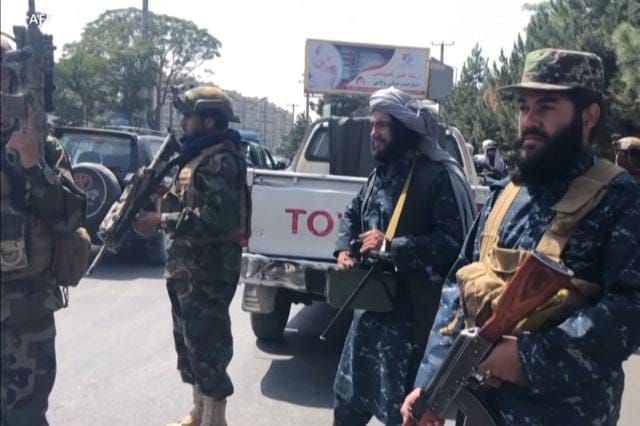India Sends Aid to Distraught Afghanistan: A New Plan to Deal with the Taliban?

By Mohammad Ibrar, MA South Asian Area Studies
On 22 February, India sent over 2,500 metric tonnes of wheat to Afghanistan via the land route through Pakistan. Carried in 50 Afghan trucks, the wheat will be handed over to the UN’s World Food Programme in Jalalabad.
This aid is part of a commitment made by India to deliver 50,000 metric tonnes of wheat to assist the people of Afghanistan. This comes after weeks of negotiations with Pakistan which allowed India to use the Wagah border for the shipment to pass into Pakistan and eventually reach Afghanistan. Transit trade was suspended between India and Pakistan three years ago over tensions between the two nations.
Indian Foreign Secretary, Harsh Shringla, and Afghanistan ambassador to India,
Farid Mamundzay, were present when the first 50 trucks left from the Indian border post of Attari and crossed into Pakistan through the Wagah border.
These trucks will eventually cross the Afghanistan border of Torkham. This aid comes at a crucial time for the country, as Afghanistan has been reeling under a severe economic collapse and food shortage since the return of the Taliban rule in August last year.
“This is a humanitarian gesture which will help India regain some respect among the wider Afghan population. But it is also a sign of India coming to terms with the reality of the Taliban in Kabul, and such supplies – which require coordination with the Taliban officials – will help New Delhi to measure the political and security temperature in Afghanistan.”
According to Avinash Paliwal, Deputy Director of the SOAS South Asia Institute, ‘This is a humanitarian gesture which will help India regain some respect among the wider Afghan population. But it is also a sign of India coming to terms with the reality of the Taliban in Kabul, and such supplies, which require coordination with the Taliban officials, will help New Delhi to measure the political and security temperature in Afghanistan.’
On January 1, India sent 500,000 Covid-19 vaccine doses to Afghanistan via Tehran. India had been requesting Pakistan to allow a land route since October last year but was met with hesitancy.
Pakistan had suspended Indian transit trade to Afghanistan after India’s move to abrogate Article 370, which gave a special status to the State of Jammu and Kashmir, in 2019.
Paliwal explained that ‘Pakistan has traditionally been averse to overland transit of goods between India and Afghanistan. But, in this case, the fact that the wheat was critical aid to address a humanitarian emergency (and not a trade item), and that the Taliban pushed Islamabad to allow overland transit – because it is cheaper, easier, and sustainable – with support from the World Health Programme helped to make it happen. Both the trucks and the drivers were Afghan, alleviating Pakistan’s concerns of Indian citizens and materials entering Afghanistan.’
However, he points out that this could possibly thaw the India-Afghanistan relationship.
According to Dawood Mohammadi, Conflict Analyst at the Tarzi Research Foundation in Kabul, this is a sizable step. However, he believes that more needs to be done.
He calls for India to engage more with the Taliban and take a participatory approach. ‘The last twenty years were a good opportunity for India to institutionalise and deepen its relationship with Afghanistan. But India was busy only dealing with the government and whenever the government faced any problems India started to skip from Afghanistan and stopped their involvement.’
Mohammadi explained that the current problem is that India thinks the Taliban is a proxy of Pakistan, ‘which they are right about. And so, India has stayed away from Afghanistan.’ He however adds that India’s aid is an important component to assist with the humanitarian crisis.
Mohammadi reiterated his calls for India to conduct dialogues with the Taliban
‘which is now the de facto government.’ He stated that India should initiate dialogue as it has stakes in Afghanistan. ‘Even we Afghans have interests in India as it is a location for many Afghans to get educated and get humanitarian aid from.’
He however said that the Taliban does not have a strong unitary view on how to establish and maintain a relationship with India.
India will be sending more wheat in the coming few days, which will hopefully serve to alleviate the food shortage in Afghanistan.
Photo Caption: Taliban soldiers stand with guns in Kabul, Afghanistan, December 2021 (Credit: Wikimedia Commons).



